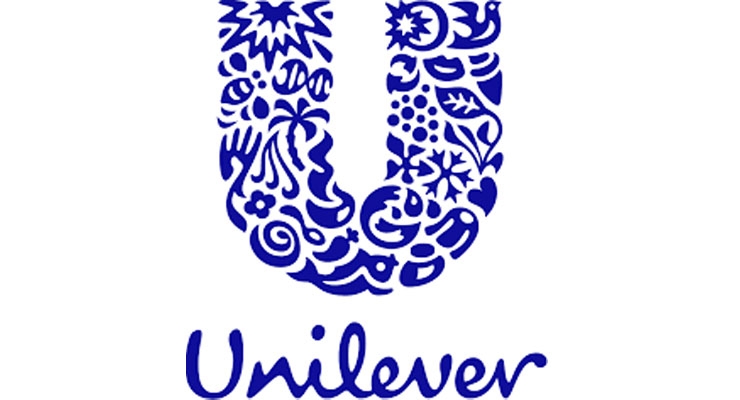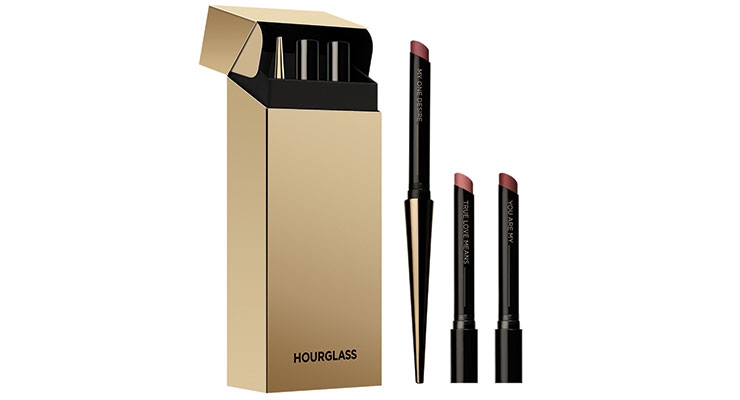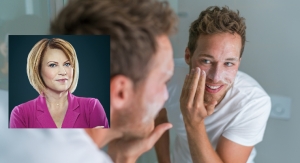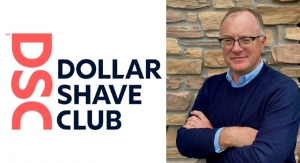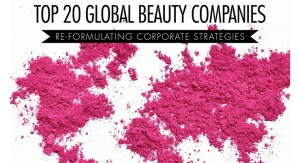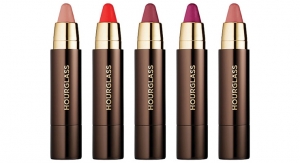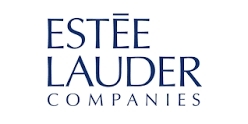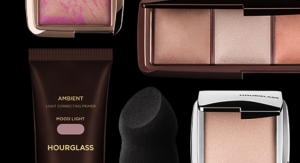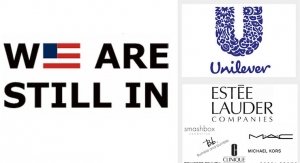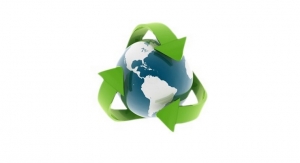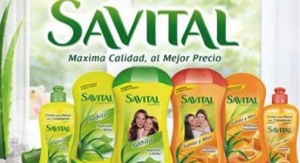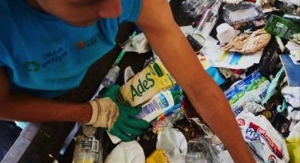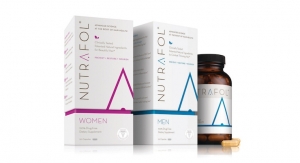Jamie Matusow with Joanna Cosgrove, Editor-in-Chief with Contributing Editor11.01.17
Update: Unilever ranks at #2 on our latest report Top 20 Global Beauty Companies 2021.
United Kingdom
www.unilever.com
Corporate Sales:
$55.5 billion
Beauty Sales:
$21.3 billion
Key Personnel:
Marijn Dekkers, chairman, Paul Polman, chief executive officer; Graeme Pitkethly, chief financial officer; David Blanchard, chief R&D officer; Marc Engel, chief supply chain officer; Alan Jope, president, personal care; Kees Kruythoff, president, North America; Jan Zijderveld, president, Europe.
Major Products/Brands:
Axe, Dove, Pond’s, TRESemmé, Vaseline, Caress, Clear, Degree, Dollar Shave Club, Lever 2000, Dermalogica, Nexxus, Noxzema, Hourglass Cosmetics, Simple, St. Ives, Suave, Tigi, Living Proof, Kate Somerville, Murad, REN, Seventh Generation, Quala, Hourglass Cosmetics.
New Products:
Dove DermaCare Scalp 2in1, Caress Forever Collection, Axe Find Your Magic, Noxzema Clean Blemish Control, St. Ives Apricot Oil Scrub, Baby Dove Rich Moisture Tip to Toe Wash, TIGI Bed Head Motor Mouth Volumizer Gloss, TRESemmé Beauty-Full Volume, Murad Retinol Youth Renewal Eye Serum, Hourglass Confession Ultra Slim High Intensity Refillable Lipstick.
Comments: Following a somewhat difficult global economic situation in 2016, Unilever said it had been “a year of solid progress and achievement.” Certainly an achievement in the global giant’s acquisitions department, it expanded and diversified its personal care categories, snapping up Dollar Shave Club for a billion dollars and shoring up deals with Seventh Generation, Living Proof (the Jennifer Aniston-backed hair care company), Seventh Generation, Murad, Dermalogica, Quala—and prestige beauty brand Hourglass, among others.
With this focus on personal care—and particularly on brands that Unilever has identified as “appealing to Millennials,” the company has kept its core business vital while also evolving the corporate portfolio in faster growing areas of the market—like Personal Care/Beauty—which now accounts for 38% of Unilever’s total business (up from 28% eight years ago).
Following this approach, despite “the impact of demonetization in India and the economic crisis in Brazil”—two major markets for Unilever—the company achieved an underlying sales growth of 3.7% in 2016, for a total of $21.3 billion in Personal Care sales, in which Unilever holds five 1-billion euro brands: Axe, Dove, Lux, Rexona and Sunsilk. Corporate sales reached $55.5 billion.
Still, when looking at the past year’s achievements, CEO Paul Polman commented on the increasing challenges of market disrupters such as local competitors who have always been present but are increasingly sophisticated and well-attuned to local consumers’ needs; and the steady stream of Indie entrepreneurs and the effective ways in which they relate to targeted groups, such as through various digital strategies and direct-to-consumer models.
In 2016, Unilever made progress with some of its brand campaigns, especially with denouncing stereotypes. Dove continued its global Self Esteem Project, and unveiled a new campaign in India. Axe took a progressive point of view on masculinity and attractiveness, launching a number of products along the way.
Growth in hair care was led by innovations such as TRESemmé Beauty-Full Volume, a unique reverse system, that first uses conditioner to soften hair, then shampoo to wash away weight, to improve volume.
Deodorants and antiperspirants continued to perform well in 2016 with Anti-Marks Antiperspirant Technology, featured in five of Unilever’s global brands; the formulation helps prevent white marks on dark clothes and the formation of yellow stains on white clothes.
In the premium segment of the global Personal Care market Unilever continued to build the prestige skin care brands they acquired in 2015: Dermalogica, Murad, Kate Somerville and REN.
Meanwhile, the acquisition of Dollar Shave Club brought the giant brand manufacturer a direct-to-consumer business model with strong subscriber relationships.
2017 News of Note
At the start of 2017, Unilever announced a commitment to ensure that all of its plastic packaging is fully reusable, recyclable or compostable by 2025, as it called on the entire fast-moving consumer goods industry to progress toward a circular economy. As part of its membership in the Ellen MacArthur Foundation, Unilever will publish a list of plastics materials used in its packaging by 2020 to help create a plastics protocol for the industry.
New technology is always a base for sales, and Unilever’s new additions to the Caress line—The Caress Forever Collection of Body Washes—is billed as “the world’s first body wash with Fragrance Touch Technology.” The breakthrough formula delivers bursts of fragrance with every touch of skin for up to 12 hours.
Following a rebuffed takeover bid by its rival Kraft Heinz in February, Unilever announced a tightening and restructuring of its corporate brands across segments, combining food and refreshment into one unit. When questioned on the decision to keep food and beauty working together, Polman said “the two help each other to develop business in emerging markets” as they are often grouped on the same stalls “in countries that rely on networks of small-scale vendors rather than on supermarket giants.”
In line with its sustainability goals, in May, Unilever unveiled new technology to recycle sachet waste, with the co-development of a new technology called CreaSolv Process, based on an innovation used to recycle TV sets. Using the process, the plastic will be recovered from the sachet, which can be used later to develop new sachets for Unilever products. Unilever is also planning to collect sachets for recycling.
With an eye on global opportunities, Unilever acquired the personal care and home care brands of Quala, the Latin American consumer goods company founded in 1980. Quala’s Savital/Savilé is the No. 1 brand in hair care by volume in Colombia, and has a good presence in the rest of the North Latin America region.
Looking Ahead
Second quarter corporate sales for 2017 reached $16.4 billion; Personal Care contributed $6 billion. Despite challenging market conditions in some of Unilever’s key markets, such as India, Brazil and Indonesia, the company reported that Personal Care continued to grow the core while expanding in high-growth segments and building in premium positions. In skincare, Baby Dove was introduced to 19 markets overall, and the new Lifebuoy with Activ Silver formula for enhanced germ-protection was rolled out across Asia. In Indonesia, they launched Hijab Fresh, a new brand said to offer a solution to the specific needs of the Muslim population. In hair, Sunsilk was a leader, especially with Millennials. Dermalogica and recent acquisitions Dollar Shave Club and Living Proof are expected to contribute to underlying sales going forward.
United Kingdom
www.unilever.com
Corporate Sales:
$55.5 billion
Beauty Sales:
$21.3 billion
Key Personnel:
Marijn Dekkers, chairman, Paul Polman, chief executive officer; Graeme Pitkethly, chief financial officer; David Blanchard, chief R&D officer; Marc Engel, chief supply chain officer; Alan Jope, president, personal care; Kees Kruythoff, president, North America; Jan Zijderveld, president, Europe.
Major Products/Brands:
Axe, Dove, Pond’s, TRESemmé, Vaseline, Caress, Clear, Degree, Dollar Shave Club, Lever 2000, Dermalogica, Nexxus, Noxzema, Hourglass Cosmetics, Simple, St. Ives, Suave, Tigi, Living Proof, Kate Somerville, Murad, REN, Seventh Generation, Quala, Hourglass Cosmetics.
New Products:
Dove DermaCare Scalp 2in1, Caress Forever Collection, Axe Find Your Magic, Noxzema Clean Blemish Control, St. Ives Apricot Oil Scrub, Baby Dove Rich Moisture Tip to Toe Wash, TIGI Bed Head Motor Mouth Volumizer Gloss, TRESemmé Beauty-Full Volume, Murad Retinol Youth Renewal Eye Serum, Hourglass Confession Ultra Slim High Intensity Refillable Lipstick.
Comments: Following a somewhat difficult global economic situation in 2016, Unilever said it had been “a year of solid progress and achievement.” Certainly an achievement in the global giant’s acquisitions department, it expanded and diversified its personal care categories, snapping up Dollar Shave Club for a billion dollars and shoring up deals with Seventh Generation, Living Proof (the Jennifer Aniston-backed hair care company), Seventh Generation, Murad, Dermalogica, Quala—and prestige beauty brand Hourglass, among others.
With this focus on personal care—and particularly on brands that Unilever has identified as “appealing to Millennials,” the company has kept its core business vital while also evolving the corporate portfolio in faster growing areas of the market—like Personal Care/Beauty—which now accounts for 38% of Unilever’s total business (up from 28% eight years ago).
Following this approach, despite “the impact of demonetization in India and the economic crisis in Brazil”—two major markets for Unilever—the company achieved an underlying sales growth of 3.7% in 2016, for a total of $21.3 billion in Personal Care sales, in which Unilever holds five 1-billion euro brands: Axe, Dove, Lux, Rexona and Sunsilk. Corporate sales reached $55.5 billion.
Still, when looking at the past year’s achievements, CEO Paul Polman commented on the increasing challenges of market disrupters such as local competitors who have always been present but are increasingly sophisticated and well-attuned to local consumers’ needs; and the steady stream of Indie entrepreneurs and the effective ways in which they relate to targeted groups, such as through various digital strategies and direct-to-consumer models.
In 2016, Unilever made progress with some of its brand campaigns, especially with denouncing stereotypes. Dove continued its global Self Esteem Project, and unveiled a new campaign in India. Axe took a progressive point of view on masculinity and attractiveness, launching a number of products along the way.
Growth in hair care was led by innovations such as TRESemmé Beauty-Full Volume, a unique reverse system, that first uses conditioner to soften hair, then shampoo to wash away weight, to improve volume.
Deodorants and antiperspirants continued to perform well in 2016 with Anti-Marks Antiperspirant Technology, featured in five of Unilever’s global brands; the formulation helps prevent white marks on dark clothes and the formation of yellow stains on white clothes.
In the premium segment of the global Personal Care market Unilever continued to build the prestige skin care brands they acquired in 2015: Dermalogica, Murad, Kate Somerville and REN.
Meanwhile, the acquisition of Dollar Shave Club brought the giant brand manufacturer a direct-to-consumer business model with strong subscriber relationships.
2017 News of Note
At the start of 2017, Unilever announced a commitment to ensure that all of its plastic packaging is fully reusable, recyclable or compostable by 2025, as it called on the entire fast-moving consumer goods industry to progress toward a circular economy. As part of its membership in the Ellen MacArthur Foundation, Unilever will publish a list of plastics materials used in its packaging by 2020 to help create a plastics protocol for the industry.
New technology is always a base for sales, and Unilever’s new additions to the Caress line—The Caress Forever Collection of Body Washes—is billed as “the world’s first body wash with Fragrance Touch Technology.” The breakthrough formula delivers bursts of fragrance with every touch of skin for up to 12 hours.
Following a rebuffed takeover bid by its rival Kraft Heinz in February, Unilever announced a tightening and restructuring of its corporate brands across segments, combining food and refreshment into one unit. When questioned on the decision to keep food and beauty working together, Polman said “the two help each other to develop business in emerging markets” as they are often grouped on the same stalls “in countries that rely on networks of small-scale vendors rather than on supermarket giants.”
In line with its sustainability goals, in May, Unilever unveiled new technology to recycle sachet waste, with the co-development of a new technology called CreaSolv Process, based on an innovation used to recycle TV sets. Using the process, the plastic will be recovered from the sachet, which can be used later to develop new sachets for Unilever products. Unilever is also planning to collect sachets for recycling.
With an eye on global opportunities, Unilever acquired the personal care and home care brands of Quala, the Latin American consumer goods company founded in 1980. Quala’s Savital/Savilé is the No. 1 brand in hair care by volume in Colombia, and has a good presence in the rest of the North Latin America region.
Looking Ahead
Second quarter corporate sales for 2017 reached $16.4 billion; Personal Care contributed $6 billion. Despite challenging market conditions in some of Unilever’s key markets, such as India, Brazil and Indonesia, the company reported that Personal Care continued to grow the core while expanding in high-growth segments and building in premium positions. In skincare, Baby Dove was introduced to 19 markets overall, and the new Lifebuoy with Activ Silver formula for enhanced germ-protection was rolled out across Asia. In Indonesia, they launched Hijab Fresh, a new brand said to offer a solution to the specific needs of the Muslim population. In hair, Sunsilk was a leader, especially with Millennials. Dermalogica and recent acquisitions Dollar Shave Club and Living Proof are expected to contribute to underlying sales going forward.

